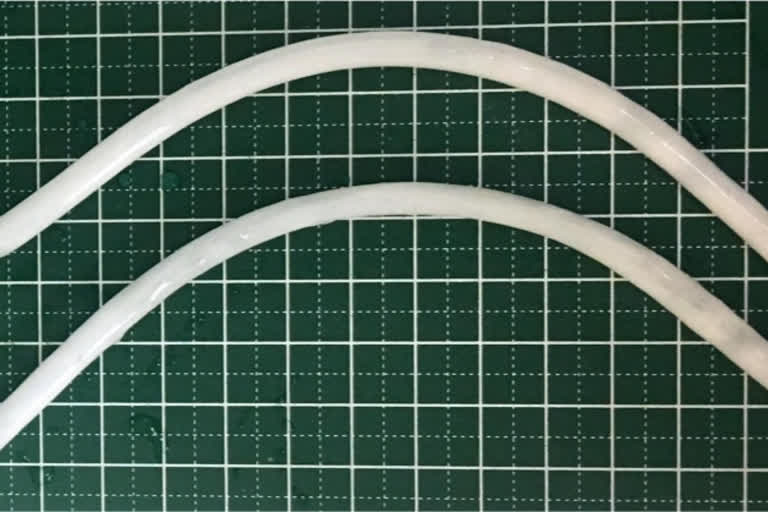Ontario [Canada]: A natural substance generated from seaweed is being utilised by researchers to increase vascular cell proliferation, avoid blood clots, and improve the function of synthetic vascular grafts used in heart bypass surgery. The novel method, developed and tested at the University of Waterloo, is especially significant in situations involving small artificial blood arteries (less than six centimetres in diameter), which are prone to clots that can lead to complete blockages.
"There is a crucial need to develop synthetic vascular graft materials that will increase the rate of long-term functions," said Dr. Evelyn Yim, a chemical engineering professor and University Research Chair who leads the project. Researchers added a material called fucoidan, which is made from seaweed, to modify synthetic blood vessels. Fucoidan has a structure similar to heparin, a drug used as an anticoagulant.
When applied with a nanotechnology technique known as micropatterning, fucoidan promotes the growth of vascular cells around the inner surface of the graft, significantly reducing the chances of clots forming. For patients, the potential benefits include fewer complications, a better quality of life and less risk of the recurrence of blockages requiring additional drug treatment or surgery.
Also read: Study finds how hormone fluctuations increase survival probabilities
"A functional, off-the-shelf, small-diameter vascular graft will help save lives," said Yim, director of the Regenerative Nanomedicine Lab at Waterloo. "What's important is that they will be much longer-lasting and allow blood to flow freely." When veins become obstructed, bypass surgery is undertaken to restore blood flow to parts of the heart. Vessels taken from the patient are the gold standard for grafts, but their scarcity frequently necessitates the use of artificial vessels.
Grafts are used in medical procedures to treat vascular diseases and restore blood flow to vital organs and tissues such as the brain and legs, in addition to heart bypass surgery. When synthetic graft material does not allow vascular cells to grow on the inside of an artery or vessel, clots form, which can lead to full blockages or inflammation that restricts blood flow. Yim has successfully tested the new technique using fucoidan and micropatterning on small animals and plans to expand to large animal testing before advancing to clinical trials. (ANI)
(This story has not been edited by ETV Bharat and is auto-generated from a syndicated feed.)



